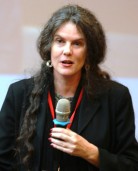
Bio:
Pamela K. Gilbert has published widely in the areas of Victorian literature, cultural studies and the history of medicine. Her particular research interests have been in metaphors of disease and the cultural history of epidemics in nineteenth century Britain, particularly cholera. She has been a research associate at the Wellcome Institute for the History of Medicine, at the University College of London, and recently held a fellowship at the Institute for Advanced Studies in the Humanities at the University of Edinburgh, where she researched the contributions of anatomist and neurologist Charles Bell, to the history of emotion and facial expression. Her current work is on skin in the nineteenth century, in medicine, literature, psychology, evolution and popular culture. She is also interested in the intersections of culture and clinical medicine in the present day. Her books include Disease, Desire and the Body in Victorian Women’s Popular Novels (Cambridge UP 1997), Mapping the Victorian Social Body (SUNY Press, 2004), The Citizen’s Body (Ohio State UP, 2007), and Cholera and Nation (SUNY Press, 2008). Her more recent essays include “Disease and the Body,” in The Victorian World; “‘A Nation of Good Animals’: Popular Beliefs and the Body,” in A Cultural History of the Body; and the forthcoming “Women and Medicine in the Age of Empire,” in The Cultural History of Women in The Age of Empire (1800-1920).

Bio:
Paulette Hahn is a physician in the UF Department of Medicine and Division of Rheumatology. She is currently active in both patient care and medical education. Her experience as a nurse prior to entering medicine, nurtured her interest in inter-professional health care collaboration, and she continues to meld the practice of nursing and medicine. She has taught courses in biomedical ethics, evidence-based medicine, Interdisciplinary Family Health, and Introduction to Clinical Medicine with a focus on communication and patient-centered interviewing. She has a longstanding interest in medical humanities that enhances the understanding of the patient and family life experience.
Dr. Hahn’s other educational involvement includes her work as portfolio advisor for the Medicine Clerkship, which incorporates reflection as a key pedagogical method. She is interested in enhancing the physical diagnostic process and critical thinking through the arts, utilizing concepts from the classic work of Rudolf Arnheim in Visual Thinking and Art and Visual Perception. She has designed an elective for medical students, The Art and Scholarship of Physical Diagnosis and Clinical Reasoning, with a capstone educational experience in visualization and observation at the Harn Museum of Art. She was inducted into the Chapman Chapter of the Gold Humanism Honor Society, and received the American College of Rheumatology Clinician Scholar Educator three-year Grant Award, which has allowed her to develop a curriculum for Internal Medicine Residents.

Nina Stoyan-Rosenzweig
Director, Medical Humanities at UF College of Medicine
Email: nstoyan@ufl.edu
Bio:
Nina Stoyan-Rosenzweig is archivist and historian at the Health Science Center Libraries and director of medical humanities for the College of Medicine. Trained as an ecologist/evolutionary biologist and historian she has taught courses in history (a variety of topics including the history of medicine), medical humanities and narrative medicine, sustainability, environmental studies, physician-patient relationship and clinical interviewing, biomedical ethics, biology, English composition, integrative medicine, and arts in healthcare. She has developed programs and curriculum in the medical humanities locally and nationally and has focused on developing medical humanities and arts as means of promoting humanism in medicine. To this end she has served on committees for the Arnold P. Gold Foundation, as well as judge for the Gold Foundation Essay Contest since 2008. She also collaborates with local organizations such as the Cade Museum, and the ACLD. In addition to her interests in humanism in medicine and using humanities to develop clinical skills, her research interests include history of botanicals and human domestication of plants, history and impact of infectious disease, political and social ideology and their impact on eugenics programs, environmental history and the impact of natural environments on humans, human-animal relationships, as well as the history of medical education. She is involved in a number of projects including an oral history project interviewing polio survivors, a book project on the history of the College of Medicine at UF, narratives and and exhibits related to the medicinal plants, health and the Panama Canal and health impacts of reviving Native Hawaiian culture.
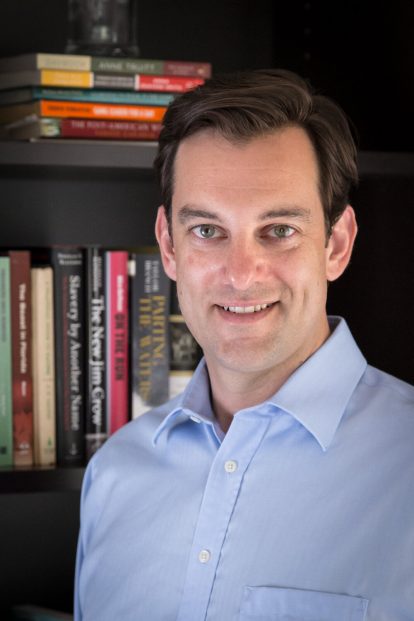 Lance Gravlee
Lance Gravlee
Associate Professor, Anthropology
Affiliate Associate Professor, Behavioral Science and Community Health
Email: cgravlee@ufl.edu
Website
Bio:
Lance Gravlee is a medical anthropologist concentrating on the health consequences of systemic racism, with a focus on hypertension in the African Diaspora. He utilizes a critical biocultural approach in his research, integrating multiple levels of analysis such as the molecular, physiological, behavioral, cultural, and social-structural while engaging in community-based participatory approaches to health equity. He is the co-founder (with Miaisha Mitchell, community organizer) of the Health Equity Alliance of Tallahassee (HEAT), a community-academic partnership that has collaborated on projects such as HEAT Heart Health, an action-oriented study on the impact of racism and related stressors on heart health among African Americans in Tallahassee.
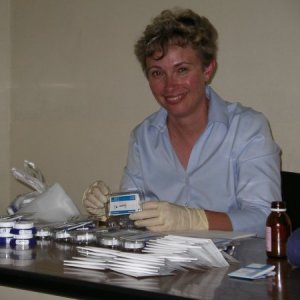 Connie Mulligan
Connie Mulligan
Professor, Anthropology
Email: cmulligan@ufl.edu
Website
Bio:
Connie J. Mulligan is a Professor of Anthropology specializing in human genetics research and biocultural investigation, topics on which she has published extensively. Her lab, Mulligan Laboratory, analyzes genetic, epigenetic, biological, psycho-social, and socio-cultural data in effort to reconstruct human evolutionary history and understand complex disease. Specific research projects conducted at the lab include investigation of genetic and cultural factors for blood pressure variation in African Americans living in Tallahassee, the impact of stress on health outcomes for new mothers and their newborns in the Democratic Republic of Congo, and the genetic and epigenetic signatures of stress and trauma for Syrian refugees in Jordan. The lab’s research into population history focuses on the first migrations of anatomically modern humans out of Africa as well as more recent colonization, with an emphasis on the Arabian Peninsula, Horn of Africa, Mongolia, and the New World.
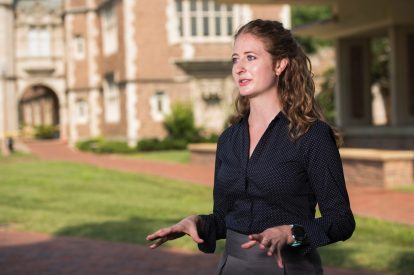 Adrienne Strong
Adrienne Strong
Assistant Professor, Anthropology
Email: adrienne.strong@ufl.edu
Website
Bio:
Adrienne Strong is a medical anthropologist and an affiliated faculty member of the Center for African Studies and the Center for Gender, Sexualities, and Women’s Studies Research. Her current book project with the University of California Press is entitled Documenting Death: Maternal Mortality and the Ethics of Care in Tanzania and focuses on the ways in which social interactions and institutional structures in a Tanzanian hospital maintain high rates of maternal mortality. She has also published on nursing in Tanzania. Adrienne uses a variety of qualitative methods centering on long-term ethnographic fieldwork and has been working in Tanzania for over ten years. A 2018 project focused on a birth companion pilot program in the Kigoma region of Tanzania. Adrienne was exploring the ways in which care and abuse are intertwined for women giving birth in various settings in Tanzania, as well as how the introduction of lay people changes the interactions in hospital settings. Overall, she is interested in theories of care and care practices, everyday ethics, nursing care and technology, colonialism, medical bureaucracy, and the meanings of maternal death for various parties, including families, communities, hospitals, and the state.
 Jill Sonke
Jill Sonke
Director, Center for the Arts in Medicine
Email: jsonke@arts.ufl.edu
Website
Bio:
Jill Sonke is director of the Center for the Arts in Medicine and Assistant Director of UF Health Shands Arts in Medicine. She serves on the faculty of the UF Center for Arts in Medicine, and is an affiliated faculty member in the School of Theatre & Dance, the Center for African Studies, and the Center for Movement Disorders and Neurorestoration. With over 20 years of experience and leadership in arts in medicine, Jill is active in research, curriculum and program development, international cultural exchange, and is a past president and Distinguished Fellow of the Global Alliance for Arts & Health. Her current research focuses on dance and Parkinson’s disease, the impact of arts programming on medical-surgical care and nursing retention, and the effect of music on cost and quality of care in emergency medicine. Jill is the recipient of a New Forms Florida Fellowship Award, a State of Florida Individual Artist Fellowship Award, an Excellence in Teaching Award from the National Institute for Staff and Organizational Development, a UF Internationalizing the Curriculum Award, a UF Most Outstanding Service Learning Faculty Award, and over ninety grants for her programs and research at the University of Florida.
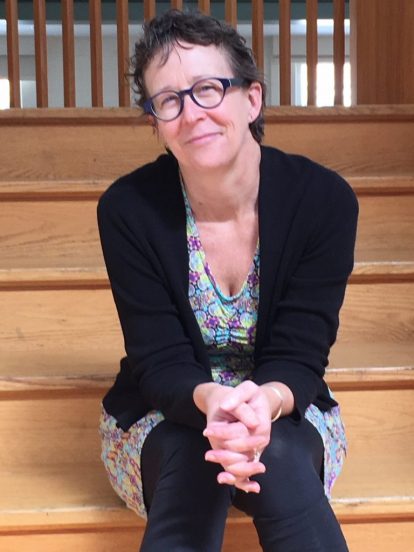 Trysh Travis
Trysh Travis
Associate Professor, Center for Gender, Sexualities, and Women’s Studies Research
Email: ttravis@ufl.edu
Website
Bio:
Trysh Travis is a cultural and literary historian focusing on addiction and recovery, gender, and popular cultures in the 20th-century United States. Her monograph The Language of the Heart: Twelve-Step Recovery from Alcoholics Anonymous to Oprah Winfrey (UNC Press, 2009) examines both the “bibliotherapeutic” dimensions of Alcoholics Anonymous, whose foundational texts were written and read almost exclusively by white men, and the literature of the “recovery movement” more broadly, much of which was written by women and minority authors connected to AA’s many offshoots. She also co-edited the anthology Re-Thinking Therapeutic Culture (Chicago, 2015). Currently, she is working on a book that is tentatively titled Feminists on Drugs: A History, a history of feminist responses to drug-using women.

Kostas Kapparis
Assistant Professor, Classics
Director, Center for Greet Studies
Email: kapparis@ufl.edu
Bio:
Kostas Kapparis is a classical scholar and social historian. His research interests include gender studies and the history of ancient medicine and science, especially the study of ancient Embryology. He has published one book on Abortion in the Ancient World, several articles on topics related to ancient embryology, and is currently working on a textual edition with commentary of two studies on fetal life from the Roman period. The bulk of his work is related to the value attached to fetal life in the first three centuries of Christianity, and the impact that contemporary perceptions of antenatal life have had in the subsequent formation of Christian views on embryonic life and its termination. He is also working on a project on monsters and the boundaries between science and myth in the Natural History of Pliny and Aelian’s Animal Stories, from the point of view that those boundaries are fluid and what was perceived to be scientific knowledge in the ancient world actually fueled the imagination and generated nightmarish monsters. Kostas is a regular reviewer for the Journal for the History of Medicine and Allied Sciences. At UF he is teaching a graduate seminar on Greek and Roman medical authors studied in the original Greek and Latin (Hippocrates, Galen, Soranus, Rufus of Ephesus, Erasistratus, Scribonius Largus and Celsus). He has been a member of the Southern Association for the History of Medicine and Science (SAHMS) since 2001 and he is currently serving as Chair of the Publications Committee of SAHMS.

Bio:
Peter L. Rudnytsky received a Ph.D. from Yale. He joined the University of Florida faculty in 1992. Trained as a Renaissance scholar, Professor Rudnytsky’s current areas of specialization include Freud, the history and theory of psychoanalysis, and psychoanalytic approaches to literature. He is the author of Freud and Oedipus (Columbia, 1987); The Psychoanalytic Vocation: Rank, Winnicott, and the Legacy of Freud (Yale, 1991); Psychoanalytic Conversations: Interviews with Clinicians, Commentators, and Critics (Analytic, 2000); and Reading Psychoanalysis: Freud, Rank, Ferenczi, Groddeck (Cornell, 2002). His most recent book is Rescuing Psychoanalysis from Freud and Other Essays in Re-Vision (Karnac, 2011). Among his numerous edited and co-edited books are Transitional Objects and Potential Spaces: Literary Uses of D. W. Winnicott (Columbia, 1993), Freud and Forbidden Knowledge (NYU, 1994), Ferenczi’s Turn in Psychoanalysis (NYU, 1996), Psychoanalyses/Feminisms (SUNY, 2000), Psychoanalysis and Narrative Medicine (SUNY, 2008), and Her Hour Come Round at Last: A Garland for Nina Coltart (Karnac, 2011).
In 2011, Professor Rudnytsky launched two new book series: The History of Psychoanalysis, with Professor Brett Kahr, published by Karnac Books; and Psychoanalytic Interventions, with Professor Esther Rashkin, published by Fordham University Press. Professor Rudnytsky serves on the editorial boards of The Psychoanalytic Quarterly, The Psychoanalytic Review, Psychoanalytic Psychology, American Journal of Psychoanalysis, and Psychoanalysis and History.
Committed both personally and professionally to integrating the academic and clinical worlds of psychoanalysis, Professor Rudnytsky received an MSW from Florida State University in 2008 and is currently a Licensed Clinical Social Worker in the State of Florida with a part-time private practice in Gainesville.
 Delia Steverson
Delia Steverson
Assistant Professor, English
Email: dsteverson@ufl.edu
Website
Bio:
Delia Steverson is an Assistant Professor of English with affiliate appointments in African American Studies and Gender, Sexualities, and Women Studies. She studies race and disability, in African American literature, with a particular focus on state-sanctioned violence and the co-constitutive systems of oppression (such as racism and ableism) which undergird it. Currently, she is working on a book that formulates a methodological approach to reading African American literature through a Critical Disability Studies lens.

Bio:
Mitchell Hart researches and teaches about the history of race and medicine, with a particular focus on the nexus of Jewish/Christian history and religion. In 2007, he published The Healthy Jew: The Symbiosis of Judaism and Modern Medicine, and is now working on a book tentatively titled Sarah’s Syphilis: The Bible in the Modern Medical Imagination, which looks at the extensive literature produced by physicians over the past three centuries about the diseases suffered by Biblical characters.
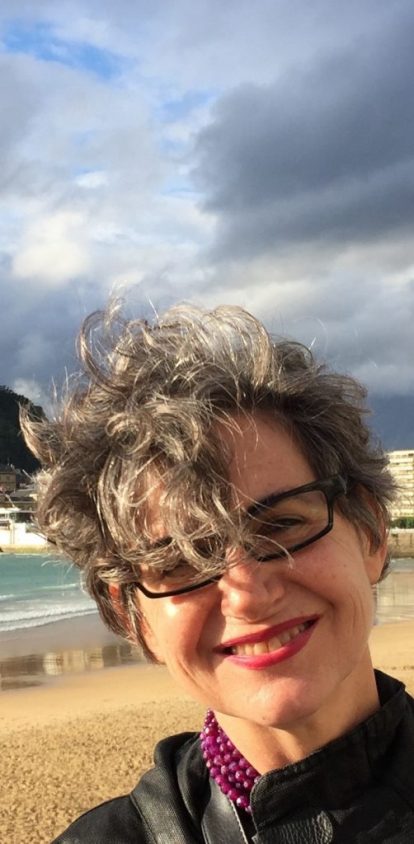 Nancy Rose Hunt
Nancy Rose Hunt
Professor, History
Email: nrhunt@ufl.edu
Website
Bio:
Nancy Rose Hunt is a Professor of History and African Studies who has published extensively on the history and anthropology of medicine, mental health care, reproduction, and humanitarianism in Africa, with particular attention to psychiatric interventions in zones of conflict, migratory politics, and securitization. Her books include A Colonial Lexicon: Of Birth Work, Medicalization, and Mobility in the Congo (Duke, 1999), Suturing New Medical Histories of Africa (LIT Verlag, 2013), and A Nervous State: Violence, Remedies, and Reverie in Colonial Congo (Duke, 2016). Currently, she is working on a book that will be a historical ethnography of madness in and outside of a psychiatric hospital in the Congolese post-conflict border city of Bukavu.
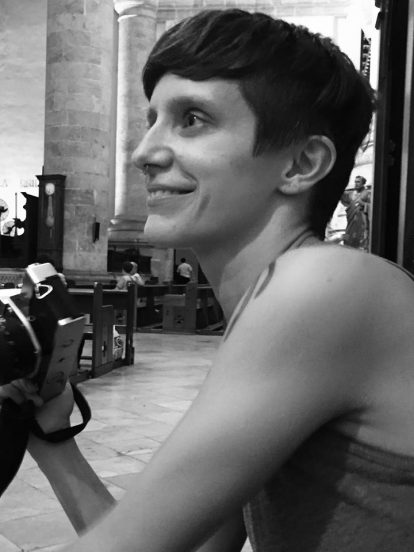 Heather Vrana
Heather Vrana
Assistant Professor, History
Email: hvrana@ufl.edu
Website
Bio:
Heather Vrana is an Associate Professor of History concentrating on disability, guerrilla medicine, student and social movements, Central America, social class, race, and the history of medicine. She is the author and editor of several books on Central American student movements and revolution, and currently co-editing New Histories of Disability in Latin America with David Carey, Jr. She is editor for History of the Latin American Research Review, Communications Director of the Guatemalan Scholars Network, and a member of the Tepoztlán Institute for the Transnational History of the Americas Collective.
Currently, she is also writing Guerrilla Medicine and Disability in Cold War Central America; the first historical monograph on disability in Central America, it extends disability history into Latin America where the field is burgeoning. While reexamining Central America’s Cold War through medicine and disability, Guerilla Medicine shows how disability was a major motive for combatants to take up arms and a critical outcome of the region’s civil wars. Using an archive of medic field journals, guerrilla film and radio broadcasts, government reports, interviews, ephemera, and more, the book expands understandings of disability as a cause of war, challenges the measures of loss that dominate truth and reconciliation scholarship, demonstrates how all sides of the global conflagration wielded health practices and discourses to achieve their geopolitical objectives, and shows how guerrilla medicine viewed disability as an opportunity for interdependence and a challenge to the biopolitics of human rights.
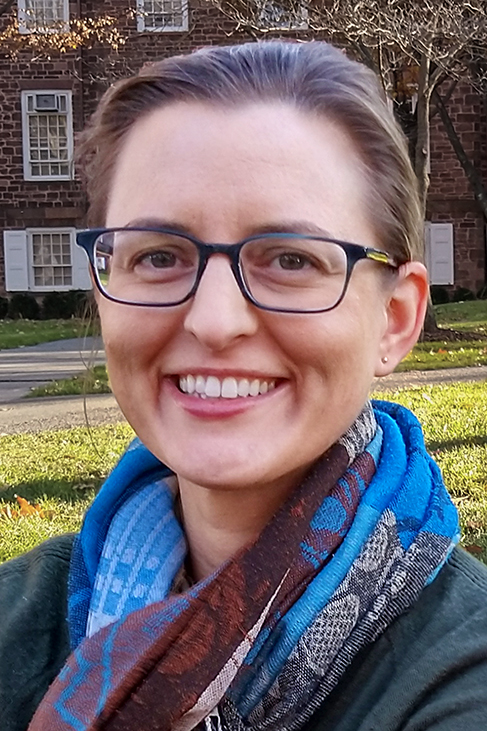 Jaime Ahlberg
Jaime Ahlberg
Associate Professor, Philosophy
Email: jlahlberg@ufl.edu
Website
Bio:
Jaime Ahlberg is an Associate Professor of Philosophy and an affiliate of UF’s English Policy Research Center, concentrating on bioethics, philosophy of education, and feminist philosophy. She has published significantly on disability, particularly intellectual and cognitive disability, epistemic agency, and educational justice. Currently, she is co-authoring with Dr. Catherine Gavin Loss (Vanderbilt University) a book on schooling and disability, which examines historical and philosophical perspectives on disability and education in conjunction with current policy debates.
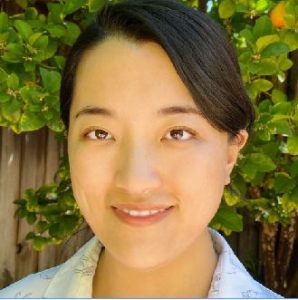 Anne Zhou
Anne Zhou
Assistant Professor, Psychology
Email: aqzhou@ufl.edu
Website
Bio:
Anne Zhou is an Assistant Professor of Psychology and a Resident of the Counseling and Wellness Center. Her research focuses on how determinants such as mental health stigma and literacy impact mental health outcomes, with a focus on treatment seeking behaviors. She plans to translate this research into culturally responsive and evidence-based intervention programs with the aim of improving health disparities, particularly for minority and disadvantaged groups.

